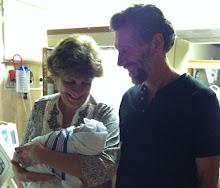We have to stumble through so much dirt and humbug before we reach home. And we have no one to guide us. Our only guide is our homesickness. — Hermann Hesse
When I was a young girl I went to camp one summer in the mountains of Colorado. It sounds like a long way from home but was actually only about an hour, in time, from my home in Denver. I really wanted to go to camp and was very excited about this new adventure, until I got there. I suddenly realized that I was surrounded by strangers, in a strange place. It was very disconcerting. At night I would cry myself to sleep. I did not want anyone to know how badly I was feeling but it must have been obvious because within a few days my counselor was hovering over me urging me to do things and get involved. Slowly but surely I recovered and was able to enjoy the experiences of camp. I returned every year after that until I was 16. By the time I went the last year it felt like returning home to pull in the gate of the camp. And yet even that last year I would feel the familiar tug of homesickness albeit briefly during my stay.
When I went to college, in Iowa, I felt the familiar tug of homesickness my first year there. Everything seemed so different to me, the people talked differently, the place looked different, my mountains were gone, my family far away. I couldn't wait to get home for Thanksgiving. The irony was that in that first visit home I didn't feel at home, everything there was different, my room had been rearranged, my parents were busy with their own stuff, my brothers and sisters felt like I was intruding. By the end of that week I was telling my best friend from 7th grade, the only one who still seemed predictable, that "you can't go home again." And being my best friend she nodded in sympathy and gave me hugs and waved goodbye at the airport.
Two years ago my husband and I moved to the mountains of North Carolina. It was the culmination of a lot of dreaming and planning that we had done over the years. In every regard it was a dream come true. We moved from our home of 27 years in Florida, leaving behind our many friends and our children, both in university there. We had planned for everything except for the sense of loss, loneliness, and emptiness that overtook me last winter. Finally, the pain of my homesickness drove me to seek help. When I sat down with the counselor the first time all I could say was, "I feel homesick and I don't even know where home is." She said nothing, which being a counselor myself I figured meant either, figure it out yourself - or I don't have a clue what you are talking about. Silence is a wonderful tool in the therapists toolbox!
So, once again I sat with my homesickness. Over the years there have been other occasions when I felt that sadness and yearning. Almost without exception loss of the familiar has ushered it in and almost without exception seeking out the familiar has not put it to rest. Instead, I have had to force myself to open up to the new, the different, the challenging. I have not been able to go back and have dreaded moving forward. Usually I think hiding will help but it doesn't and then I am left to "stumble through the dirt and humbug." During this latest occurrence I realized the truth in my words, ..."I don't even know where home is." The truth is that no matter how much I love my surroundings, my friends, my life, my children, these things are all temporary. I cannot depend on them for that sense of "home" that I long to find. I have not lost any close loved ones as an adult but friends who have describe the same sense of loss of bearings. It's more than just the loss of that person, it's the sense that you have been cut loose from your own moorings. The sense that no matter what stays the same everything is different. When I read Hesse's words I said "yes!" I am not the only one who has this sense that home is out there but I have yet to reach it.
Is this heaven I am seeking? Or God? Or some universal heartbeat that merges with my own? I can only guess and yet I keep being pushed forward by this "guide." Forced to face the impermanence of most things, I sense that somewhere not too far from here, is the home I seek. Perhaps an hour away, a day's drive, a quick flight. I don't know how I will get there, only that I will. As much as I dread the feeling of homesickness I appreciate that it is what pushes me on. And as I stumble through the dirt and humbug, worrying over each misstep, I realize that the trip is one we all share. When I was the saddest I could be at camp in those long ago days, my heart breaking as I hid beneath my sleeping bag, a calming stillness would wash over me and I would sleep. And on waking stumble some more.
